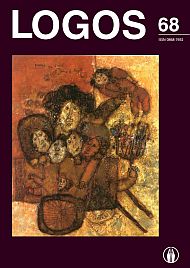Jėgos Teisė Ir Teisės Jėga Formuojantis Helenistinei Autokratijai
The Right of Might and the Might of Right during the Build up of Hellenistic Autocracy
Author(s): Raimondas KazlauskasSubject(s): Political Philosophy, Governance, Political history, Ancient Philosphy, Philosophy of Law
Published by: Visuomeninė organizacija »LOGOS«
Keywords: autocracy; philanthropy; city-state; might; right; principle of order; legitimation; form of governance;
Summary/Abstract: The article considers the development of judicial awareness in Ancient Greece. It focuses on the two relatively autonomous elements of Greek civilization – might and right – and on their historical interdependence. An almost permanent state of war, the pursuit of practical efficiency, and the specialization of race fragmented the social solidarity of Greek city-states. During the classical and post-classical period, the forms of governance continued to develop in Greek city-states. Hellenism was a dominant form of political regime. It was autocratic; it was legitimized by the new principle of of order and justice prevalent at that time – the fortune of the charismatic monarch (tyche). Under the influence of political and religious demagogues, democracy gradually, but quickly enough, degenerated into autocracy based upon the religious philanthropy and political handouts by some influential and rich people.
Journal: LOGOS - A Journal of Religion, Philosophy, Comparative Cultural Studies and Art
- Issue Year: 2011
- Issue No: 68
- Page Range: 104-113
- Page Count: 10
- Language: Lithuanian

